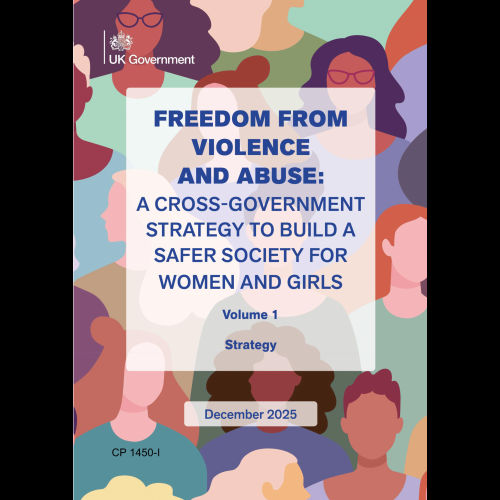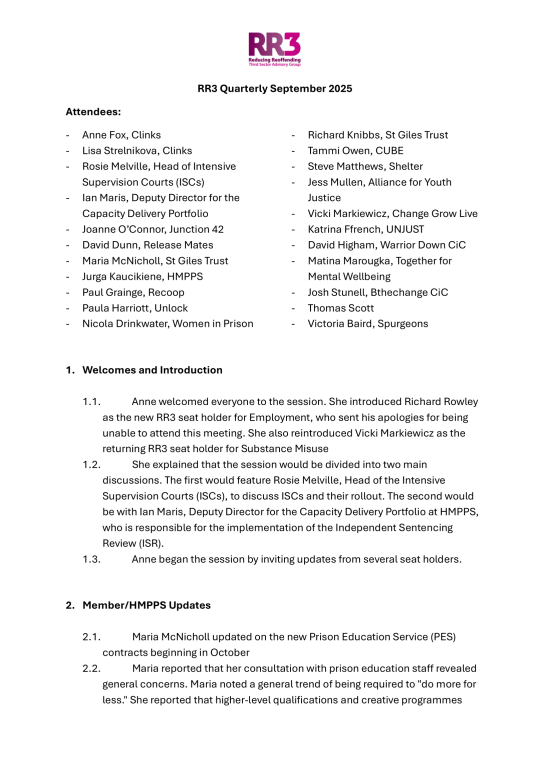The impact of restrictive regimes in prisons
Many people in prison have been locked in their cells for over 23 hours a day since March 2020. Recent reports by HM Inspectorate of Prisons and Prison Reform Trust have provided further evidence on the severe impacts that lockdown continues to have on the physical and mental health of people living in prison. This chimes with what Clinks members have reported to us throughout the pandemic.
The government’s roadmap to ease restrictions in the community means most of us can look ahead with optimism in the coming months. For people in prison however, there is still a great deal of uncertainty as to when they will be able to see family and loved ones in person and resume positive activities. HM Prison and Probation Service (HMPPS) is committed to reopen regimes in line with the National Framework for Prison Regimes and Services when it is safe to do so, though live outbreaks of Covid-19 across the estate means it will be some time until many prisons can progress.
Voluntary organisations too are eager to return to prisons to provide essential services to people in prison. To support their planning, voluntary organisations can sign up to weekly heat map updates from HMPPS, which set out the current regime status across the prison estate in England and Wales. Operational updates from HMPPS will also be issued, and organisations can request the Exceptional Delivery Models that inform stage three delivery. To sign up for these updates, please email covid19@clinks.org.
Government approach to vaccinations in prisons
In January, Clinks wrote to the Joint Council of Vaccinations and Immunisations (JCVI) to call for the prioritisation of the vaccine to all people living and working in prisons. A mass vaccination programme in prison offers the fastest way out of current restrictions. It can help prisons return to regimes that are more humane and bring back voluntary sector education, wellbeing and resettlement activity that is so essential to help people turn their lives around and reduce reoffending.
Many in the voluntary sector have also been advocating for a whole prison approach to vaccinations, but as yet there has been no formal response to such requests. Government policy remains the same - people in prison will continue to be vaccinated along the same timescale as people in the community.
Progress of the vaccination programme in prisons
The vaccination programme in prisons first started in Wales, before going live in England in the week of 25th January. Only the Oxford-AstraZeneca vaccine is being used in prisons, as the Pfizer vaccine is unfeasible in the prison estate, due to requirements of storage and transportation. There are a number of practical challenges related to rolling-out vaccinations in prisons, including live outbreaks, staff absences, people who are isolating, logistical challenges with vaccination delivery and the highly restrictive regimes that are currently in place.
The targets in prisons as to when each priority group will be vaccinated reflects the targets set by the government in the community. Clinks is pushing for regular prison vaccination figures to be published by NHS England and HMPPS.
For more information on the early stages of the vaccination programme in prison, please see the notes from a meeting of the Reducing Reoffending Third Sector Advisory Group special interest group on Covid-19 (RR3 Covid-19 SIG). Kate Davies CBE, Director of Health and Justice at NHS England and Improvement attended the meeting to update the voluntary sector on the progress of the programme and some of the challenges they have faced.
Responding to hesitancy amongst people in contact with the criminal justice system
As the vaccination programme rolls out, some attention has turned to potential hesitancy amongst people in prison towards the vaccine. Many people in prison have faced experiences in their lives which have led them to mistrust the state, services and those in power. Some initial research conducted by EP:IC into the views of people in prison towards the vaccine, shows that there is a degree of hesitancy across all groups of people, and that perspectives vary across different prisons, ethnicities and age groups.
Voluntary organisations excel at delivering services that are informed by an empathetic and holistic understanding of an individual, and as a result they can build relationships that are often more trusting, especially where people with lived experience are involved in service delivery. The RR3 Covid-19 SIG met on 24th February with HMPPS to discuss how the voluntary sector can work with government to support people to make an informed choice about the vaccine. The SIG advised that the voluntary sector needs clear, accurate information from government and that organisations must be free to use and mould this information in the way they think is most effective to reach the people they support. HMPPS have supplied some initial resources to Clinks designed to equip staff with information about the vaccine. Please email the covid19@clinks.org mailbox with the subject line ‘vaccination information’ to request these resources.
Clinks will continue to make the case for the welfare of people in prison during lockdown, and the need for prioritisation of vaccines for all people working and living in prison. In the short term however, prison regimes will continue to be heavily restricted and people in prison will be vaccinated in line with the priority groups identified for the rest of the population.
Photo: Steven Cornfield
What's new
Blogs
Violence Against Women and Girls (VAWG) Strategy Blog
Publications
Latest on X
The role is for a leader from an organisation focused on racially minoritised people, with expertise in service delivery, policy, advocacy, or related areas in criminal justice. Racial disparities are present at every CJS stage. This role ensures these voices are central in shaping policy to help address and eradicate them. Apply by Mon 18 Nov, 10am. More info: https://www.clinks.org/voluntary-community-sector/vacancies/15566 #CriminalJustice #RR3 #RacialEquity

